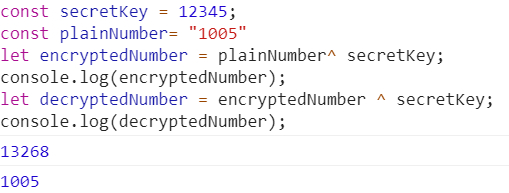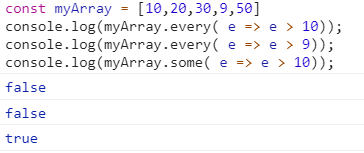In a previous article, I compile some of the JavaScript “techniques” that I usually use in my development day-to-day. In this new article, I collect 12 more techniques that are very practical in front-end or the backend(nodejs) development, but maybe they are not so well known.
- Randoms
- Encrypt a number
- Create Functions Dynamically
- Every and Some
- Convert to Boolean
- Conditionally setting a variable
- Swap variables
- Shorthand with the && operator
- Set mandatory parameters
- Beautify JSON programmatically
- How to customize with CSS & Template Literals your javascript console
- Merging multiple objects
1. Randoms
In the following example, I show two practical ways to generate random numbers or getting a random item from an array.
Generate a random number from a range:
let getRandomNumber = (min, max) => {
return Math.round(Math.random() * (max - min) + min);
}
console.log(getRandomNumber(0, 100));

getRandomNumber function.
Get a random item from an array:
let names= ['Evelyn', 'Harper', 'Jackson', 'Avery', 'Jack', 'Eleanor', 'Carter'];
const chooseName = () =>{
let randomName =
names[Math.floor(Math.random()
*names.length)];
return randomName;
}
console.log('Random name:', chooseName(names));

chooseName function.
2. Encrypt a number
You can use the XOR (^) operator to encrypt and decrypt numbers messages. Here is how it works:
const secretKey = 12345;
const plainNumber= "1005"
//Encrypt it:
let encryptedNumber = plainNumber ^ secretKey;
console.log(encryptedNumber);
//Decrypt it:
let decryptedNumber = encryptedNumber ^ secretKey;
console.log(decryptedNumber);

Decrypted number.
3.Create Functions Dynamically
Create functions dynamically is a useful mechanism to generate functions dynamically based on a string. The first parameter is a comma-separated list of arguments, and the last parameter is the code for the function body:
const multiply = new Function("n1", "n2", "return n1 * n2");
console.log(multiply(2, 3));

Result of the dynamic function.
You can use default parameters (ES6):
const multiply = new Function("n1", "n2 = 3", "return n1 * n2");
console.log(multiply(2));

Result of the dynamic function.
Or Rest Parameters(ES6) with a reducer(ES6):
const multiply = new Function("...numbers", " return numbers.reduce( (a,b) => a * b, 1)" );
console.log(multiply(1,2,3,4));

Result of the dynamic function.
4. Every and Some
The (ES11) Array.every() method in JavaScript is used to check whether all the array elements satisfy the given condition. The Array.some() method in JavaScript, instead, is used to check whether at least one of the array elements satisfies the given condition.
const myArray = [10,20,30,9,50]
console.log(myArray.every( e => e > 10));
console.log(myArray.every( e => e > 9));
console.log(myArray.some( e => e > 10));

Results of the different functions.
#javascript #programming #web-development #node #developer
